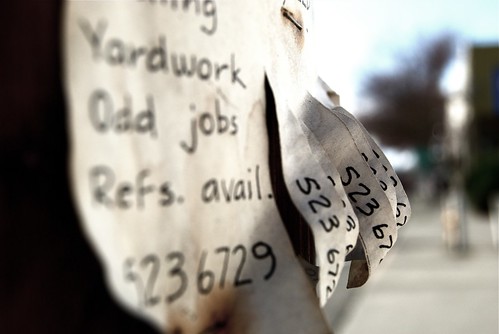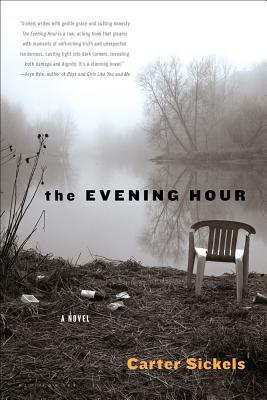Have you noticed that more and more often, writer bios emphasize everything about the author’s life but writing? Authors list their credentials from the odd jobs they’ve worked: door-to-door knife salesman, pig farmer, department store perfume-sprayer—okay, I made those up, but pick up virtually any book by an up-and-coming author and you’ll see that they’re not far afield.
Writer Edan Lepucki discusses this phenomenon in an insightful essay on The Millions:
Or is my annoyance at the non-standard bio about something else? With the authors who have held a dozen, motley jobs, I worry that book writing is just a hobby for them, a one-off thing, another occupation in a long line of them. God damn the dilettantes multi-talented! Or is it because such a bio suggests that writing, and the devotion to that pursuit, isn’t worthy enough for its own three-line biography? Maybe it’s that tired idea that writers are lame, sheltered wimps who haven’t really lived. “Please!” these bios call out. “I’m more than just a writer! I am worthy of your admiration and respect!”
I’m sure this is all stemming from my own insecurities. Part of me is embarrassed by the fact that I’ve pursued writing since I was a kid, that I did not have a long and colorful life before I put pen to paper. I’m probably just envious. I can’t blame the writers whose bios spotlight a different kind of life, a different part of life. As I said, it’s all branding, in the end. Don’t hate the player, hate the game.
For some writers, I think Lepucki is exactly right: such bios might be an attempt to pre-empt the perennial criticism that the author hasn’t lived a real life or worked a real job.
But perhaps there’s something more. I wonder if some authors use their author bios as a way to assert their bona fides, especially when the author’s biography and the character’s life overlap. Are you writing a novel about a time-traveling ninja? Be sure to mention your history degree and your sixteen years of studying karate. Working on a story about a traveling circus? Tell the audience that you can juggle seven balls at once, or that you used to perform as a clown at children’s birthday parties.
There’s nothing wrong per se with this kind of author bio—as Lepucki points out, it’s just another form of author branding. And there’s nothing wrong with drawing on your life experience, either; after all, don’t all fiction writers do that? However, bios-as-credentials suggest that a writer is somehow more qualified to write the story than another writer. It implies that only a writer who knows about gang life (for example) can truly write about gangs, or that only a writer who climbs mountains could write about a Mt. Everest expedition. Or—taking this a step further—only an Indian writer can (or should) write about an Indian character, or only a woman can (or should) write women characters. But shouldn’t fiction writers be able to imagine their way into experiences they’ve never had?
When you read an author bio like those Lepucki highlights, does it change your perception of the book—especially for fiction?






